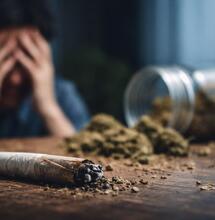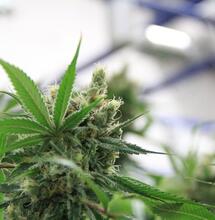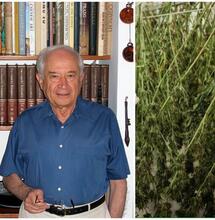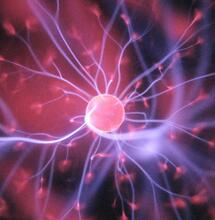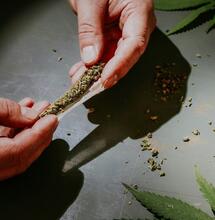Feeling High = Greater Symptom Relief

Researchers at the University of New Mexico (UNM) assessed the correlation between feeling high and symptom relief in a study that included nearly 2,000 medical cannabis patients. One of the main takes from this study is that flower with higher concentration of THC led to increased symptom relief once the patient felt high. Vaporizing was found to be more helpful than smoking flower.
Feeling high or the psychedelic buzz we get from smoking weed is not after all only for recreation. We've all known that. But now there's scientific research that quantifies the therapeutic effect of feeling high and how that helps with symptom relief.
A study recently published in the journal Frontiers in Pharmacology, carried out by researchers from the University of New Mexico (UNM), found that patients who feel high after using cannabis often experience more significant symptom relief.
The researchers worked with ReLeaf, an app allowing patients to monitor real-time experiences with various medicinal cannabis products. The study included nearly 2,000 MMJ patients, who reported more than 16,000 "administration sessions" with cannabis flower.
The study showed that 49% of patients reported feeling high, which correlated with positive effects such as feeling "chill" or "happy." Close to eight percent of patients reported greater symptom relief and increased feelings of relaxation and peace, while 20% also reported common side effects such as dry mouth and red eyes.
The researchers note in the paper that "feeling high was statistically significantly associated with feeling clumsy, confused, dizzy, foggy, and paranoid, [as] well as effects like happy, grateful, great, and optimistic."
In an article published in the UNM News Room, they explain more about the patients who felt high and experienced greater symptom relief. "This suggests that feeling high may be a fundamental component of the effective use of cannabis as medicine, rather than a tangential, negative effect to be avoided in clinical settings," they note.
"In addition, factors that increase symptom relief, such as feeling high and THC, are associated with increased negative side effects such as impairment," writes Associate Professor Sarah Stith. "These complexities suggest that the future of cannabis-as-medicine lies in highly customized treatments rather than the conventional pharmaceutical model of standardized dosing for most patients," Stith says.
Jacob Vigil, senior author and Associate Professor of Psychology, explained the goal behind the research. "Feeling 'high' is poorly defined in the scientific literature," he says. "But is generally associated with both impairment and feelings of euphoria."
"Typically, feeling 'high' is assumed to be the goal of recreational use, but a limitation to cannabis' therapeutic potential. In this paper, we test the validity of this assumption and find that feeling 'high' may be an unavoidable component of using cannabis medicinally," Vigil notes.
The THC levels among study participants were strongly associated with feeling high, especially when they used a vaporizer. Ultimately, as the results suggest, "higher THC increases symptom relief only if the patient feels high."
The research effort further suggests that patients struggling with anxiety, depression, pain and fatigue were among those who experienced more relief. At the same time, insomniacs experienced less relief. Age as well factors in. Patients over 40 years old had less intense symptom relief following intoxication.
Last but not least, in their recommendations, the researchers remark that clinicians should familiarize more with the connectedness between feeling high and symptom relief. And also, that lawmakers should understand that even recreational use of cannabis can lead to "unintended health benefits."




